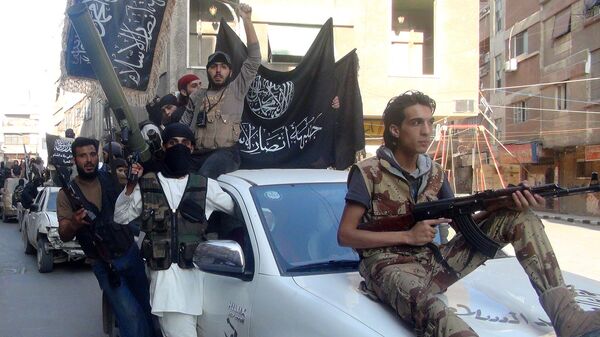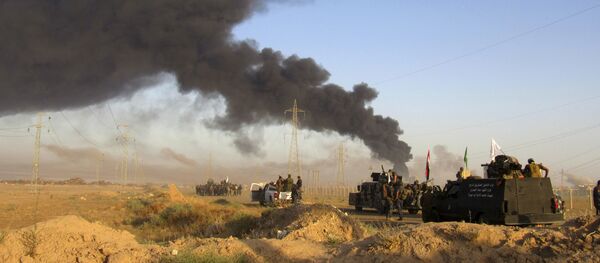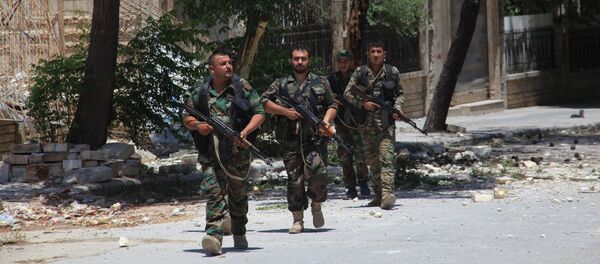Reports continue to come out of Syria on the deaths of civilians as a result airstrikes by the US-led anti-Daesh coalition. Late last month, the Syrian Arab News Agency reported that 45 civilians were killed and 50 more injured following a coalition attack on the town of al-Ghandour outside Manbij, northwest Syria. Earlier, coalition forces bombed Tuhan al-Kubra, accidentally killing and injuring over three hundred non-combatants.
On August 4, the Russian Foreign Ministry stated that US and coalition forces had launched over 90 attacks against populated areas since the start of operations near Manbij on July 19, killing hundreds and injuring literally thousands of civilians, 'by the most conservative estimates'.
Earlier, Russian deputy permanent representative to the UN Evgeny Zagaynov expressed "serious concern" about the coalition's destruction of schools, hospitals and other civilian infrastructure. In turn, Foreign Ministry spokeswoman Maria Zakharova urged the Western media to pay closer attention to the war crimes being committed by the so-called 'moderate' opposition, supported by some Western governments.
Asked to comment on the situation, Syrian political analyst Salim Ali told Radio Sputnik that unfortunately, the international community is unlikely to pay any attention to Syrian civilian deaths caused by US-led coalition.
The analyst angrily noted that "the international community has never reacted to crimes which occur as a result of wars unleashed by the Western countries, led by the United States. They take note of and condemn the actions of others – those who try to prevent the implementation of [Western governments'] plans. Russia is stopping them in Syria. Therefore, they will always level criticism against Russia, especially when it carries out strikes against the terrorists who hold the civilian population hostage."
At the same time, the political analyst emphasized that "the Islamists are the main allies of Western countries. When the Americans find it favorable, they recruit the whole world to fight against al-Qaeda. When they find it advantageous, the terrorists suddenly turn into 'moderate opposition'. All the Islamist groups in Syria who are 'moderate opposition' according to the US criteria, are really people charged with carrying out US plans."
According to Ali, when it comes to Syria's future, the situation on the battlefield will play just as much a role as the agreements which can be reached at the negotiations table. "A Syria that is united and strong will be an ally of Russia; this is unfavorable to the US. They are more interested in seeing a Syria along the lines of a Somali or Libyan scenario. Syria's future depends on the US coming to an agreement with Russia. But right now the US doesn't even want to negotiate with Russia on the question of who is a terrorist and who isn't."
Therefore, the question of which scenario emerges victorious (a Syria which is united and at peace, or a failed state) "depends on who will be successful on the battlefield," the commentator concluded.




